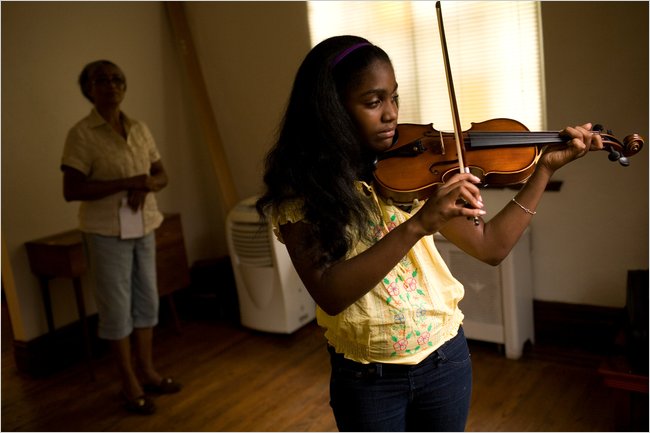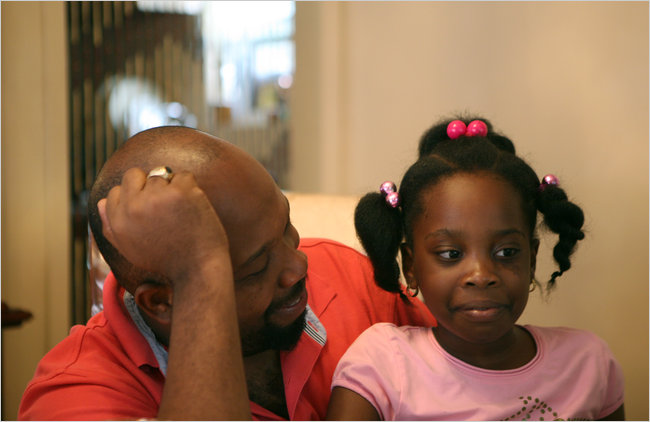| Want to send this page or a link to a friend? Click on mail at the top of this window. |
More Special Reports |
| A SPECIAL SECTION: Haiti since the January 12, 2010 Earthquake |
| Posted July 1, 2010 |
| New York Region |
| A PARISH TESTED |
|
In First Summer After Quake, a Lost Haitian Ritual |
 |
|
MICHAEL APPLETON FOR THE NEW YORK TIMES |
| Soraya Martelly, 11, and her grandmother Eva Thebaud in Queens. Soraya's mother never cancelled summer in Haiti, even though landslides damaged the family's hometown. |
|
By ANNE BARNARD |
 |
|
OZIER MOHAMMAD/THE NEW YORK TIMES |
| Jomarie Almeus, 8, and her father, Jocel, who worried that his mother's home in Haiti was too isolated. |
| Wehaitians.com, the scholarly journal of democracy and human rights |
| More from wehaitians.com |